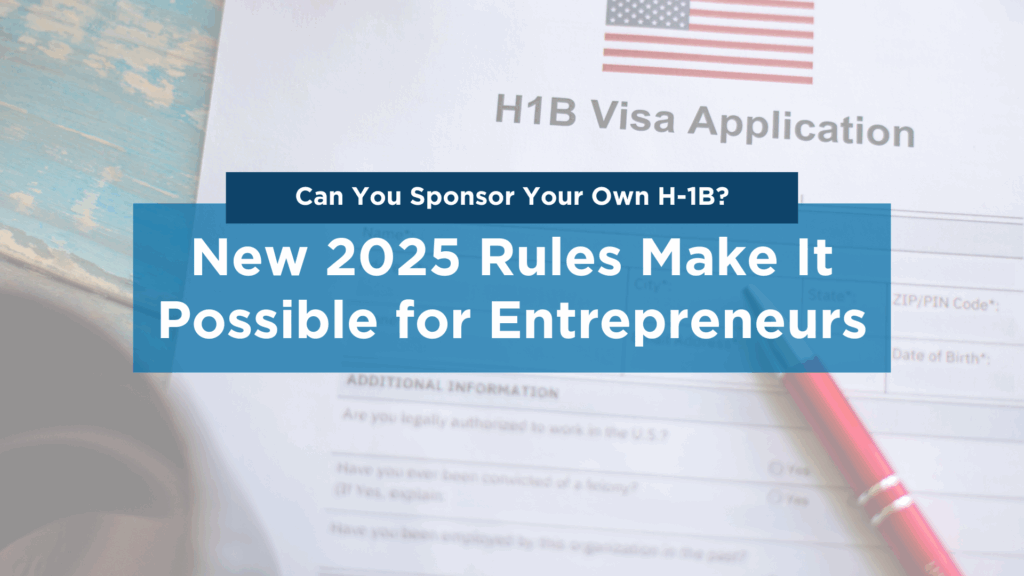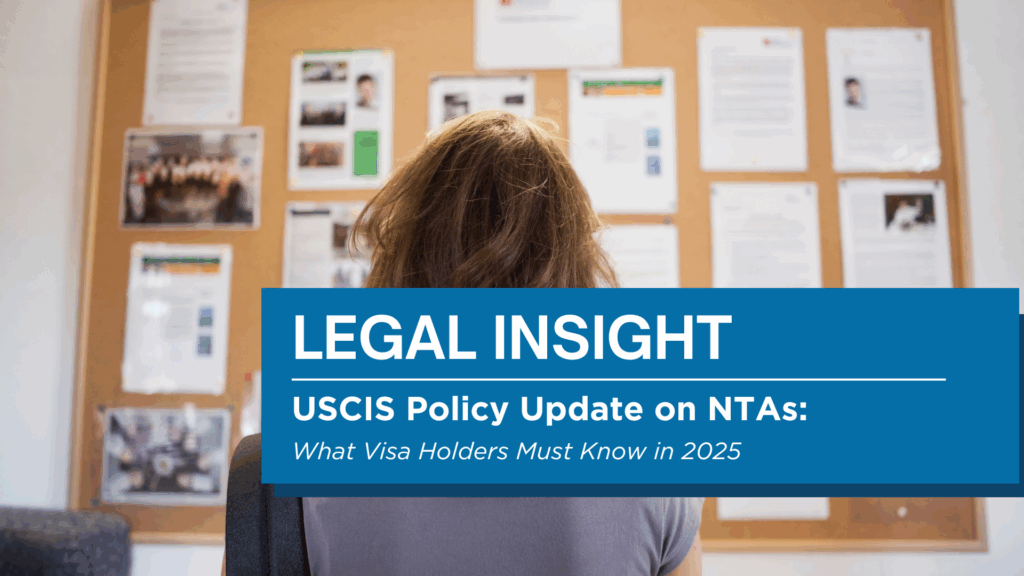Posted in: Vinay Malik | September 4, 2025

The U.S. Department of State has announced a significant policy shift: Starting November 1, 2025, all immigrant visa interviews will be scheduled in the applicant’s country of residence, or—if requested and approved—in the applicant’s country of nationality. This applies to employment, family, and Diversity Visa (DV-2026) applicants alike. Interviews at third-country consulates will now require special authorization and proof of compelling circumstances. What Has Changed? Effective November 1, 2025, the National Visa Center (NVC) will: Schedule immigrant visa interviews at consular posts located in the applicant’s country of residence. Accept requests for interviews in the applicant’s country of nationality—but only with supporting documentation. ...
Continue Reading
Posted in: Vinay Malik | August 28, 2025

For decades, the H-1B visa program has required that U.S. employers petition on behalf of foreign professionals. But in 2025, a major policy shift is changing that dynamic. Thanks to the H-1B modernization rules introduced in January, qualified entrepreneurs can now sponsor themselves through their own startup — even if they own 100% of the company. This new pathway opens doors for founders and innovators who want to build businesses in the United States while maintaining lawful work authorization. However, self-sponsorship comes with strict conditions and requires careful preparation. Self-Sponsored H-1Bs Are Now Possible — But With Key Requirements To qualify, entrepreneurs must...
Continue Reading
Posted in: Vinay Malik | August 28, 2025

U.S. Citizenship and Immigration Services (USCIS) has started strictly enforcing a February 2025 policy memo that expands when a Notice to Appear (NTA) may be issued. An NTA means being placed in removal (deportation) proceedings — a process no visa holder wants to face. This change affects H-1B professionals, F-1 students, B-2 visitors, family-based applicants, and many others. What Changed? Before: If a petition was denied, many could leave the U.S. voluntarily. Now: If your status has expired at the time of denial, USCIS may issue an NTA automatically. Examples include: H-1B extension denied after I-94 expiration. F-1 OPT denied after status ended. B-2 overstay...
Continue Reading